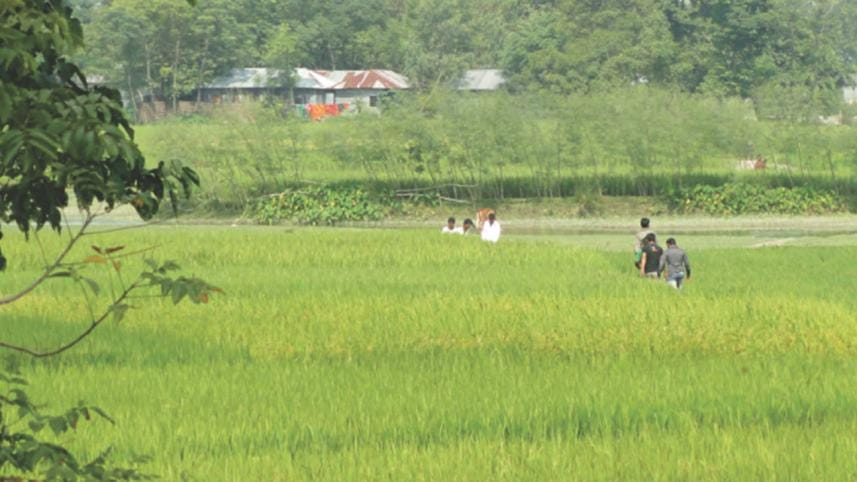Thousands celebrate historic India-Bangladesh border pact

Thousands living near the Bangladesh-India border celebrated Sunday an historic agreement that will allow them to choose their nationality after decades of stateless limbo.
Poor villagers living in border enclaves waved Bangladeshi flags, held street parades and broke down in tears after Saturday's ratification of the deal covering parts of the border along India's eastern flank.
"I have never dreamt that I would live to see myself become a citizen of any country," said Moinul Haq, who lives in one of the Indian enclaves inside Bangladeshi territory.
"We have finally tasted freedom after 68 years," he said by phone, bursting into tears as he joined a "victory procession" of more than 1,000 members of his Boshpechai-Bhitokuti enclave.
Similar celebrations were held in other enclaves, said Golam Mostofa, general secretary of an association of enclaves.
"All of us are now Bangladeshi citizens. Our pains and decades of frustrations are over. We're now liberated and can now claim citizenship rights. The enclaves will now have schools, clinics and government offices," Mostofa said.
Indian Prime Minister Narendra Modi signed the pact with his Bangladeshi counterpart Sheikh Hasina in a ceremony on Saturday, the highlight of his two-day visit to India's closest ally.
An agreement on the ownership of the 162 enclaves -- essentially "islands" of land located in each other's country -- had proved elusive for decades. They resulted from complex ownership arrangements made centuries ago by local princes.
Around 50,000 people are thought to live in the "islands" and lack many basic services such as schools, clinics and utilities because they are cut off from their national governments.
Under the agreement each country will assume sovereignty over all enclaves in its territory.
Residents will be allowed either to stay put or to move across the border. The enclaves will effectively cease to exist.
Bangladesh actually endorsed the deal in 1974 but it was only last month that India's parliament gave its approval, paving the way for Saturday's joint ratification ceremony.
Modi and Hasina signed a series of other agreements on Saturday, including building much-needed power plants in Bangladesh, while India announced a $2 billion line of credit to its neighbour to deepen relations.
On Sunday Modi met embattled opposition leader Khaleda Zia to discuss Bangladesh's political turmoil, that has seen her Bangladesh Nationalist Party pressuring Hasina to step down.
"There were talks on the current political situation in Bangladesh," BNP spokesman Moyeen Khan, who attended the meeting, told reporters.
"And there were talks on the current absence of democracy in Bangladesh. They also held a one-to-one talk," Khan said.
India refrained from criticising Hasina's re-election in January 2014 in a general election that was boycotted by the opposition and dismissed as "not credible" by Western nations.
There have been months of unrest in the impoverished country since then as Zia staged a long-running campaign for fresh elections.
Scores of people have been killed in firebomb attacks on vehicles since the opposition leader called a transport blockade at the start of the year in a bid to topple Hasina.
Security forces have since rounded up thousands of BNP activists and their Islamist supporters in a massive crackdown.
Indian officials had played down the idea of Modi mediating in the dispute between Hasina and Zia, saying he would instead pressure Zia to end the attacks.
At the meeting Modi stressed India's opposition to fundamentalism, Indian foreign secretary S. Jaishankar told reporters.
"He made it very clear that we are supportive of democracy and we are opposed to fundamentalism and terrorism," Jaishankar said.



 For all latest news, follow The Daily Star's Google News channel.
For all latest news, follow The Daily Star's Google News channel.
Comments